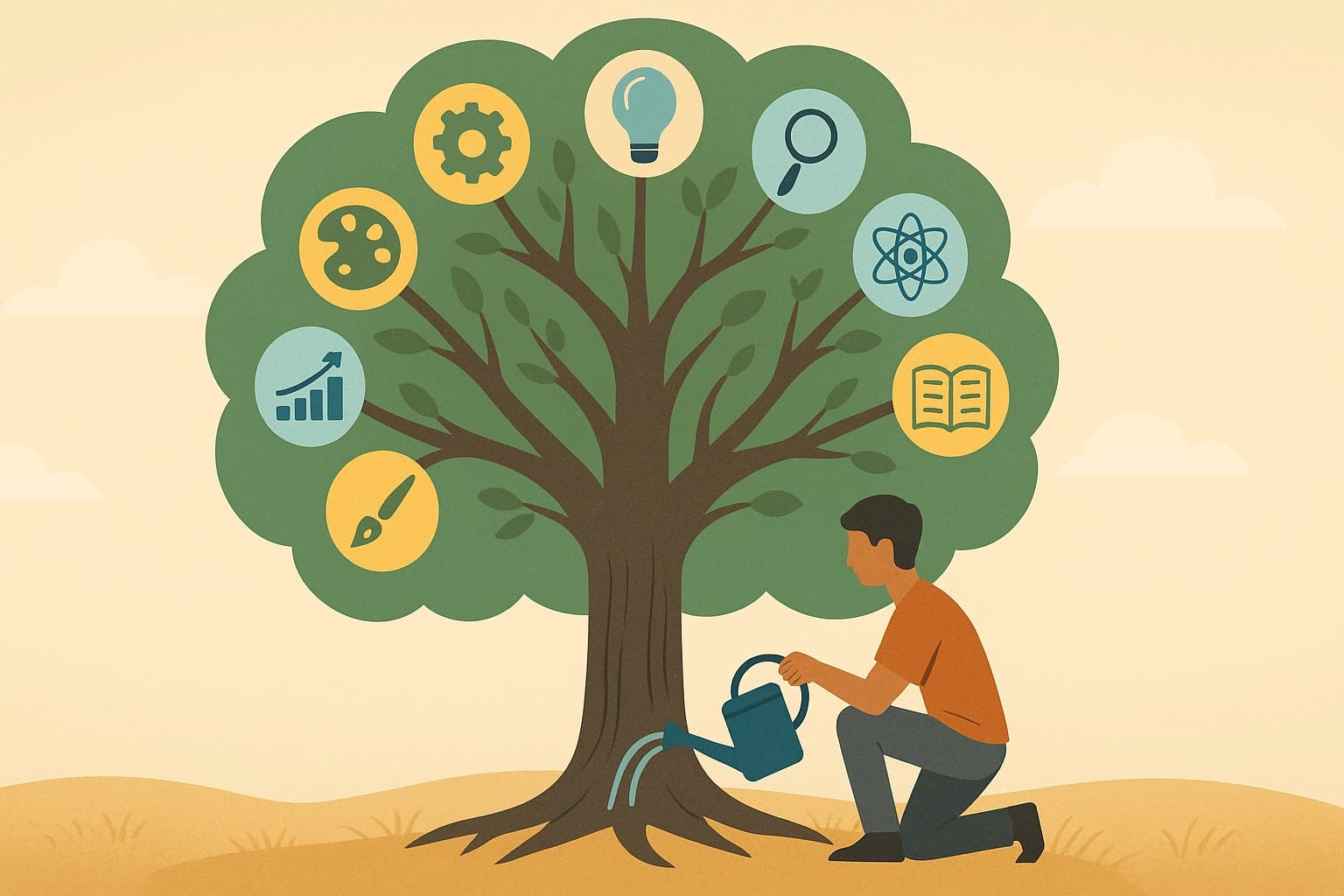
Human + AI: The New Collaboration Skill
Human + AI: The New Collaboration Skill
When I first started using AI in my software work, I’ll be honest, it worried me. It was exciting, but also a little unsettling. You start to wonder: if it can do this much, what happens to my job?
Over time though, that worry turned into curiosity. I realised it wasn’t replacing me, it was changing how I work.
Now, I use AI all the time. I’ll get it to brainstorm ideas, write throwaway bits of code, or test out different solutions before I commit to one. It helps me hash through ideas fast, quick proofs of concept, small experiments, little apps I can break without worrying. I see what works, what doesn’t, and then I build something more structured and scalable out of the best bits.
The way I approach problems now is completely different. I don’t start by thinking “What can I build?” anymore. I start with “What can we explore together?”
From Tool to Assistant
These days, working with AI feels less like using a tool and more like having an assistant. It’s not perfect, far from it. But if you treat it like a teammate and keep the conversation flowing, it’s surprisingly effective.
Honestly, I find you get more out of it if you just chat to it like a friend. I still use please and thank yous. Maybe that’s silly, but it helps me stay patient and intentional.
Like us, it gets things wrong. And most of the time, when it gives you a bad answer, it’s because you didn’t explain the problem well enough. It’s not really its fault, it just doesn’t know the full picture. You learn to slow down, give better context, and guide it more clearly.
It’s taught me that patience and clarity are just as important in prompting as they are in programming.
It’s Not Taking Our Jobs
One of the biggest misconceptions I see, especially in tech, is that AI is here to take everyone’s jobs. It’s really not.
It’s brilliant at helping us move faster, but it’s terrible at understanding why we’re doing something in the first place. It doesn’t understand the humans behind the work, the context, the constraints, the trade-offs. That still needs us.
I like to think of it as a very eager junior assistant. It works hard, it wants to help, and sometimes it nails it. Other times it goes completely off the rails. But if you give it good guidance and feedback, it learns fast.
That’s the human in the loop, the part that keeps everything anchored to purpose and meaning.
The Real Skill: Collaboration
What’s changed isn’t the work itself, it’s the way we do it.
We’re not competing with AI; we’re learning to collaborate with it. That collaboration takes a mix of skills that sound surprisingly human:
- Curiosity: asking better questions and exploring ideas you might not have thought of on your own.
- Critical Thinking: checking, testing, and refining what it gives you.
- Empathy: understanding when a human touch still matters more than speed or scale.
- Patience: giving clear instructions, knowing that most mistakes come down to poor communication.
The real trick isn’t to fight AI or blindly trust it, it’s to work with it, to learn how to bring out its best.
The Human Edge
If you strip everything back, what AI can’t replicate is the why behind what we build. It doesn’t understand people, emotions, or purpose. It can’t care, and caring is half the work.
AI helps me get to the starting line faster. But finishing well still depends on creativity, intuition, and that human ability to connect the dots.
And that’s the part I find exciting. It’s not that AI is taking something from us, it’s giving us space to focus on what makes our work meaningful.
So yes, I talk to it like a friend. I experiment, break things, and learn as I go. And like any friendship, the more effort you put in, the better it gets.
Over to You
How’s AI changed the way you work or think about your craft? Are you using it as a shortcut, or as a collaborator?
Found this helpful? Share it!
Enjoyed this post? Subscribe to my newsletter for more insights on web development, career growth, and tech innovations.
Subscribe to NewsletterRelated Posts

Jack of Many Trades, Master of Learning
Explore how curiosity, versatility, and lifelong learning help professionals thrive in the age of AI. The true edge is adaptability, not specialisation.

The Future Belongs to the Adaptable
In a world accelerated by AI and automation, the most valuable skill is the ability to learn, adapt, and reinvent. This post explores how education can prepare students to thrive in uncertainty.

Why I Still Learn the Hard Stuff (Even When AI Can Do It)
AI can write the code, but it can't understand the system. Here is why learning the fundamentals matters more than ever.